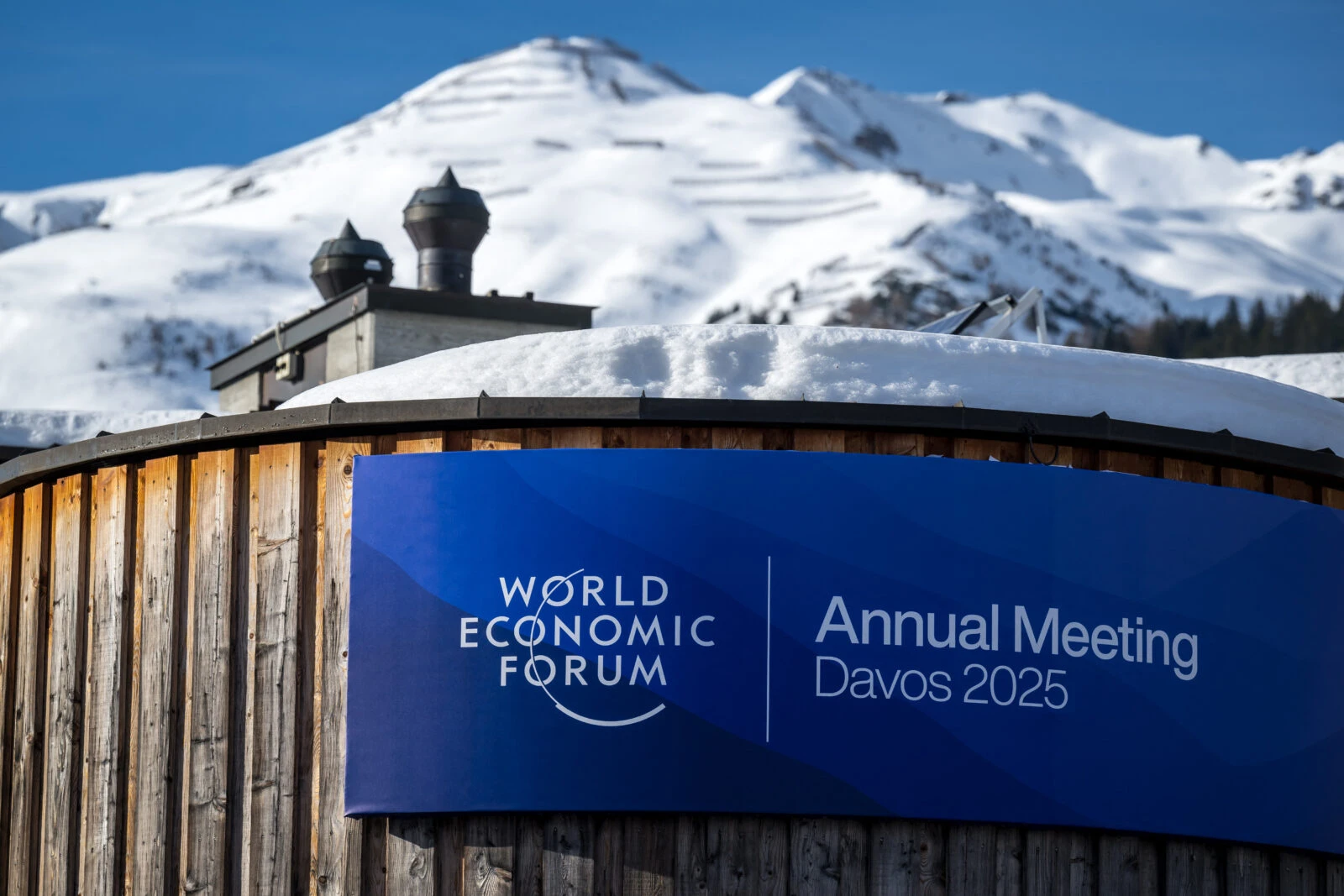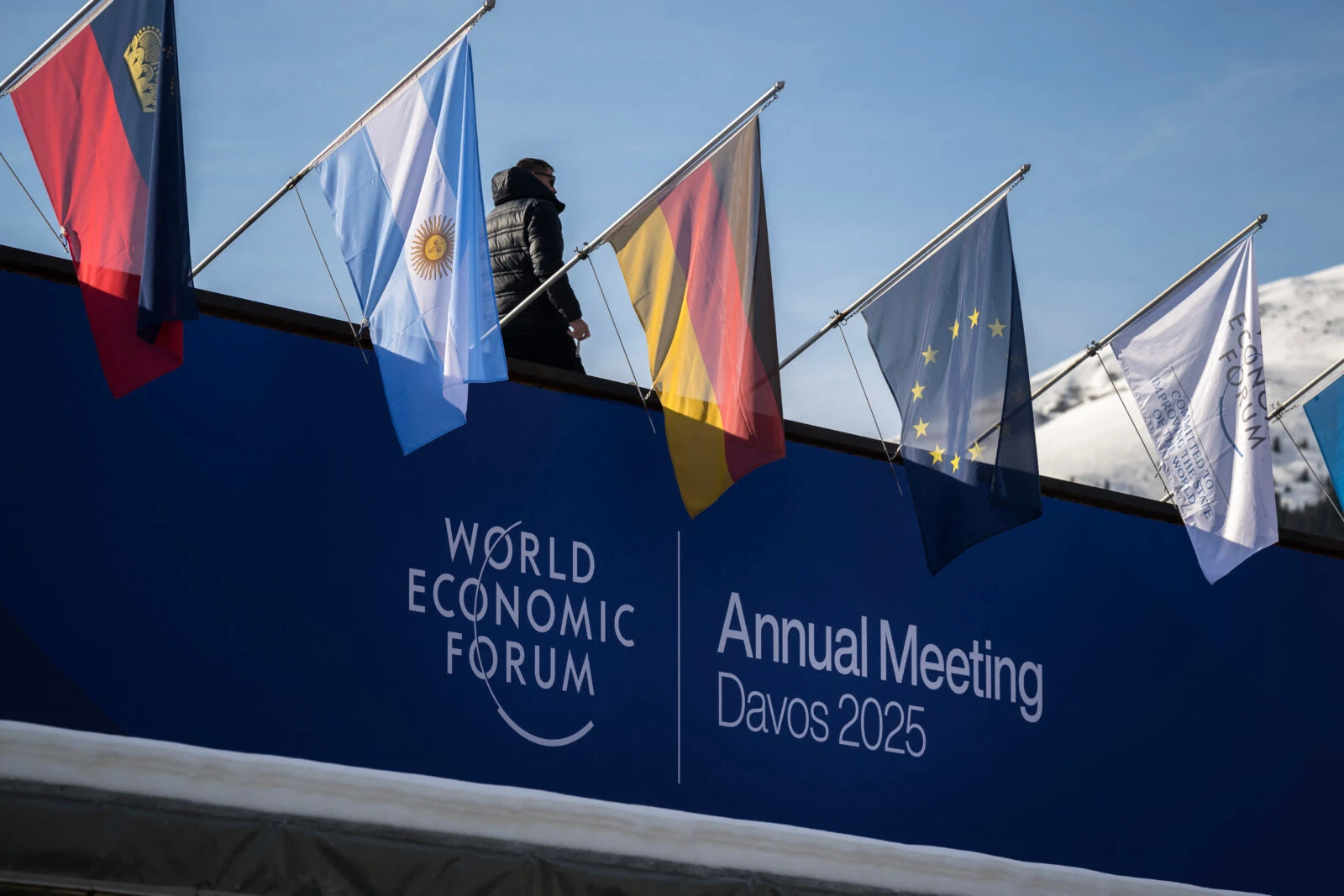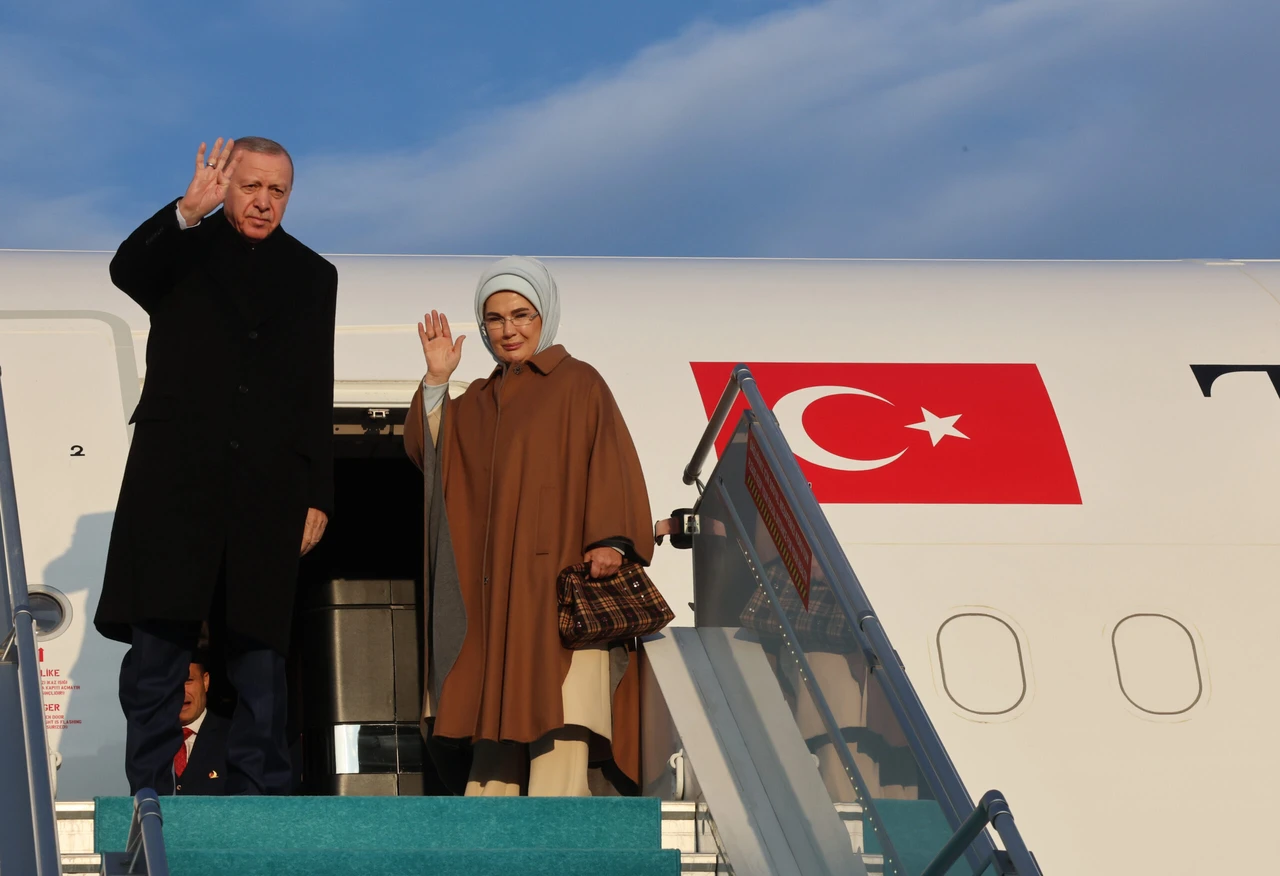Global economy to confront Trump’s inauguration in Davos
 This photograph shows a sign of the World Economic Forum (WEF) at the Congress center, during the WEF annual meeting in Davos on Jan. 20, 2025. (AFP Photo)
This photograph shows a sign of the World Economic Forum (WEF) at the Congress center, during the WEF annual meeting in Davos on Jan. 20, 2025. (AFP Photo)
The World Economic Forum’s annual summit in Davos is set to continue on Tuesday with remarks from the E.U. on China, following U.S. President Donald Trump’s inaugural ceremony on Monday, which is expected to promote global economic cooperation against protectionist initiatives.
A prominent focus at the World Economic Forum (WEF) in the Swiss Alpine resort is expected to be U.S. President Donald Trump, who will address the event via video link on Thursday.

Trump returned to the White House on Monday, bringing with him a more protectionist administration and fears he will deliver on promises to slap heavy tariffs on China and U.S. allies including Canada and the European Union. In his inaugural address, he vowed Washington will “tariff and tax foreign countries.”
European Commission President Ursula von der Leyen will kick the day off. She appeared to give a taste of what to expect, defending the “need to work together to avoid a global race to the bottom” and wanting to “forge new partnerships” in a post on X as she arrived in Davos.
I came to Davos to meet leaders, tackle global challenges and forge new partnerships.
In an era of growing divides, the Davos spirit offers opportunities to innovate and enhance our prosperity.
In this spirit, we need to work together to avoid a global race to the bottom. pic.twitter.com/UxC83LsAN7
— Ursula von der Leyen (@vonderleyen) January 20, 2025
China and Ukraine keep an eye on Trump
China’s Vice Premier Ding Xuexiang ─also a member of the Chinese Communist Party’s apex of power that rules the country─ will speak immediately after von der Leyen.
Chinese President Xi Jinping’s conversation with Trump by phone on Friday, he said he hoped for a “good start” to relations with the new administration. Although Trump said he would undertake sweeping trade penalties against China, he has also indicated he wants to improve ties ─and even stepped in to reverse a U.S. ban on Chinese-owned social media platform TikTok on national security grounds.
Ukraine meanwhile is keeping a very close eye on what Trump’s second mandate will involve. Ukrainian President Volodymyr Zelensky is expected to call on world leaders and company executives to maintain ─and even ramp up─ their support for his country’s fight against Russia. Zelensky on Monday said he is hopeful Trump will help achieve a “just peace.”
European ‘struggle’ for global economy
Embattled German Chancellor Olaf Scholz will address the forum, likely his last as leader ahead of elections next month. Also speaking on Tuesday will be conservative leader Friedrich Merz, the favorite to succeed him as chancellor.
Europeans are fretting the most about Trump’s return while countries from Brazil to China and India to Türkiye believe he will be good for their countries and global peace, according to a survey last week from the European Council on Foreign Relations (ECFR).

The report accompanying the survey of over 28,500 people across 24 countries serves as a warning for European leaders to act cautiously. “Europeans will struggle to find internal unity or global power in leading an outright resistance to the new administration,” the ECFR report’s authors said.
‘Better understand’ Trump
Middle East conflicts will also be high on the agenda as Israeli President Isaac Herzog and Qatari Prime Minister Sheikh Mohammed bin Abdulrahman bin Jassim al-Thani speak in separate sessions during the first full day of the forum.
As a fragile ceasefire holds in the Israel-Hamas war, the forum will host a discussion on how to improve aid delivery to the Palestinian territory of Gaza and how to kickstart the reconstruction and recovery after heavy bombardment.
South African President Cyril Ramaphosa will also deliver a special address on Tuesday, as the continent’s most industrialized country shows it is open for business.
Despite suggestions, Trump’s return would overshadow the forum that began on the same day as his inauguration in Washington, WEF President Borge Brende said the president had brought fresh interest to the gathering. “It has increased the interest in Davos because people feel they need to come together to better understand what’s on its way,” Brende told AFP in an interview.



